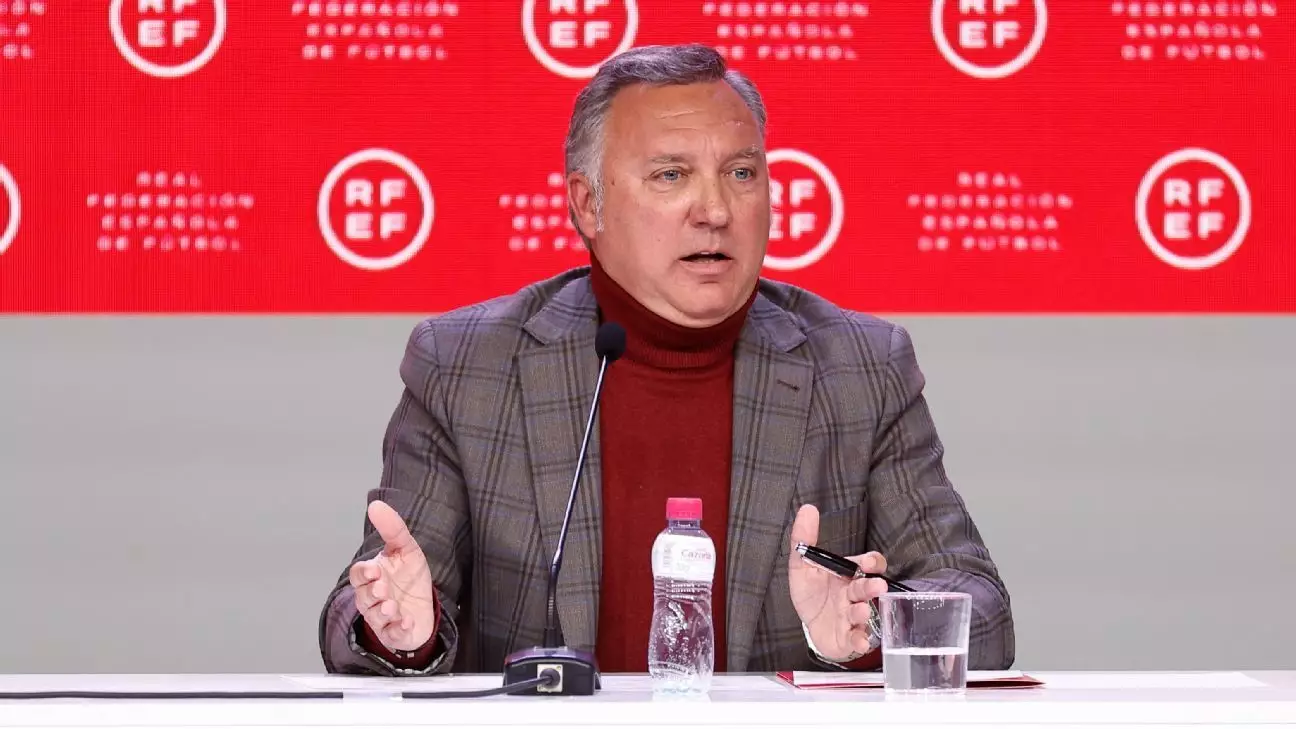The landscape of football in Spain has been recently punctuated by rising tensions, particularly regarding officiating standards and allegations of improprieties. In the latest chapter of this ongoing saga, Luis Medina Cantalejo, the head of Spain’s refereeing body, has responded firmly to accusations of manipulation leveled by Real Madrid. This controversy raises significant questions not only about the integrity of match officiating but also about how club rivalries might influence perceptions of fairness in the sport.
Real Madrid’s frustration comes in the wake of a disheartening 1-0 defeat to Espanyol, a match marred by contentious decisions. The club’s board took the unusual step of penning an open letter addressed to the Spanish Football Federation (RFEF) and the Sports Ministry. They expressed their indignation regarding several key officiating errors that, in their view, compromised the outcome of the match. Of particular concern was the failure to send off Espanyol defender Carlos Romero for a foul on Kylian Mbappé just before he later scored, alongside a contentious disallowed goal from Vinícius Júnior.
These complaints are emblematic of a growing discontent among clubs regarding the transparency and consistency of officiating in La Liga. Madrid’s board criticized the refereeing as “discredited” and called for essential reforms to address systemic issues within the refereeing framework, illustrating a broader concern within Spanish football about accountability and fairness.
In defense of the integrity of his colleagues, Medina Cantalejo delivered a counter-narrative, asserting that while errors in judgment can occur, corruption is a different matter entirely. In an interview excerpt, he emphasized that referees approach their work with the intention of fairness, firmly rejecting any suggestions of malevolence or corruption. “We might be really clumsy, or really bad, but corrupt? No,” he stated, positioning the referees as ultimately honorable individuals dedicated to the game.
This defense highlights a crucial aspect of sports officiating: the balance between human error and the expectations from teams, players, and fans. Referees operate in high-pressure environments where even minor mistakes can ignite furious backlash from clubs—especially those with vocal and influential followings. Medina’s insistence on the integrity of the referees begs the question of how best to address the complexities of officiating in such a charged atmosphere.
Adding to the fractious environment, prominent figures within the football community have weighed in on the dispute. For instance, Real Madrid President Florentino Pérez has called for governmental intervention to improve refereeing standards. Pérez’s remarks reflect a potent blend of frustration and a desire for systemic influence, emphasizing how deeply embedded the issue of officiating is within the broader context of Spanish football politics.
Meanwhile, former Barcelona player Gerard Piqué provided a counterpoint, accusing Real Madrid of using accusations against referees as a tactical distraction from their performance struggles. Piqué argued that this is a longstanding tactic within the club’s history, pointing to a narrative where blame deflects attention from athletic shortcomings. His comments intimate that the battle over refereeing is not merely about fairness but also about control of the narrative in Spanish football.
The ongoing furor surrounding officiating practices in La Liga underscores larger, systemic issues within professional sports. It reveals how deeply intertwined club rivalries can complicate perceptions of fairness and equity in operations. As scrutiny on officiating intensifies, and with the backdrop of scandals like the Negreira case—where financial improprieties involving Barcelona and former officials were disclosed—questions about the structural integrity of the sport’s governance come to the forefront.
In this environment, it is paramount for referees, clubs, and governing bodies to work collaboratively toward enhancing transparency and accountability. While passionate debates about officiating will persist, addressing the core issues of competence, trust, and governance can help restore a sense of integrity to the sport, ensuring that the focus returns to the beautiful game itself rather than the controversies surrounding it.
The discourse surrounding refereeing in Spain encapsulates a microcosm of the broader tensions within football, woven together by competition, power, and the unending quest for fairness on the pitch.

Leave a Reply